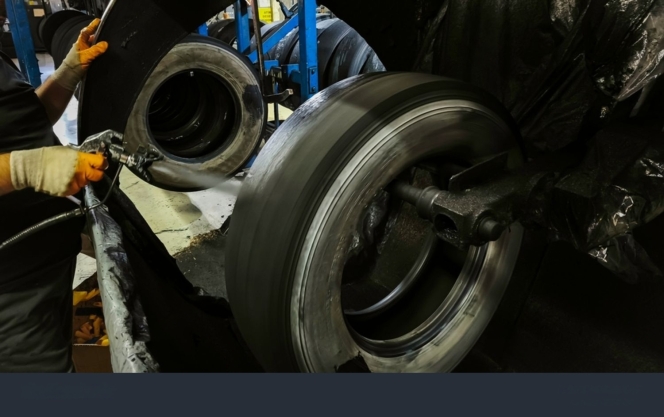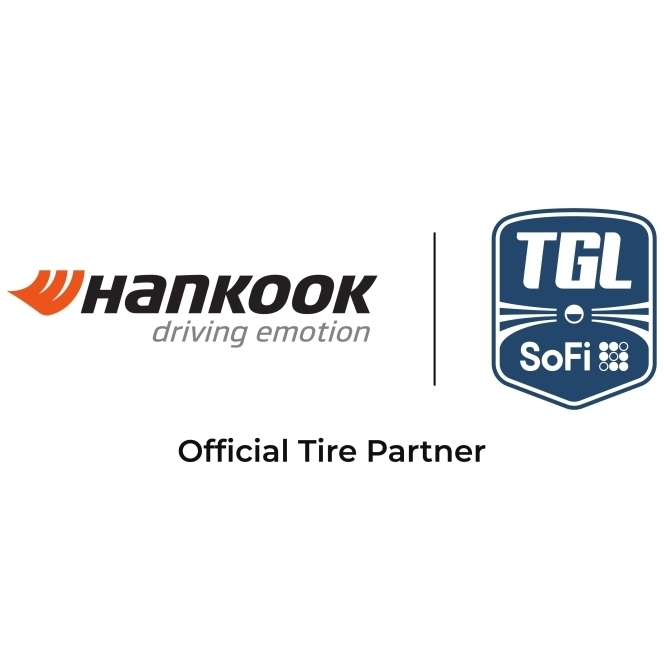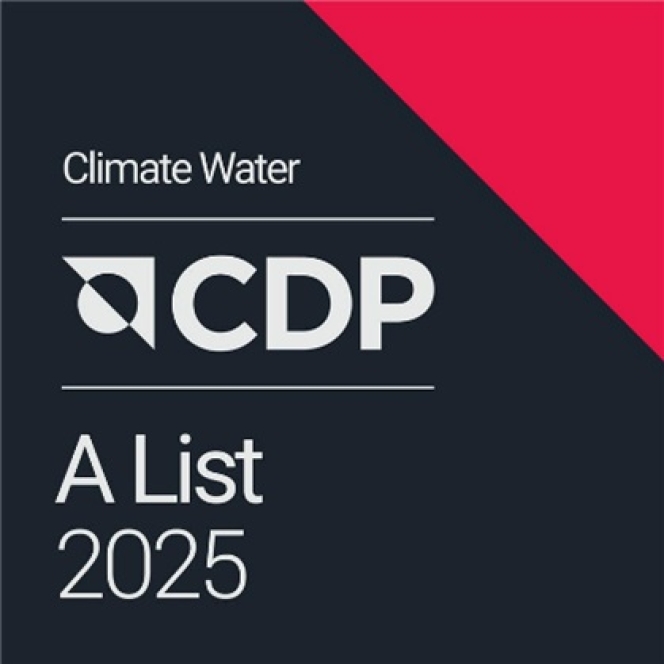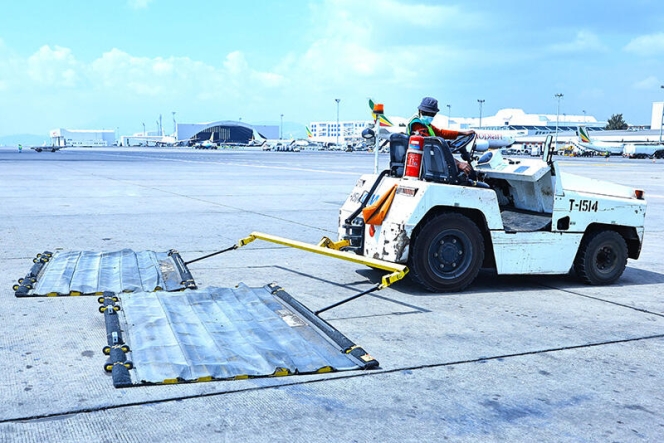We Are On A Steep Learning Curve Since The Beginning Of 2020: Rogier van Hoof
- By Sharad Matade
- October 13, 2021

Being a global supplier of tyre oil, Nynas supplies its products to major tyre companies worldwide. However, the Covid-19 pandemic brought unforeseen challenges in transporting goods through all three modes of transportations, and Nynas is no exception! In an interview with Sharad Matade of Tyre Trends, Rogier van Hoof, Head of Secondary Distribution Naphthenics at Nynas, says enhanced communication and exchange of information digitally will help the company handle the new challenges. He also added that the container availability is expected to be normalised in 2022 but road transportation will remain a challenge.

Ever since Covid-19 engulfed the world, the job of Rogier van Hoof, Head of Secondary Distribution Naphthenics at Nynas, has become more challenging. Though tyre production is coming back on track speedily, the challenges at the logistic front are still demanding. Recollecting the initial impact of Covid, van Hoof says, "For Nynas, it all started in early 2020, when the lockdowns in China forced factories to close down manufacturing activities. However, the initial shock was largely seen in truck movements. As part of the measures, drivers had to go into quarantine after a long haul drive. They could pick up a container, but they had to go into quarantine when they were back at the delivery point. So we saw an immediate effect on the truck availability. The cascading impact, I don't think anybody could have predicted. We are on a steep learning curve since the beginning of 2020."
van Hoof and his team swung into action and immediately enhanced the communication with its customers, forwarders and logistic partners to evaluate options to tackle the unprecedented challenges. "I don't think anyone was prepared for what had happened afterwards. Before Covid, people used to take logistics for granted that you order something and it's there when you want it. But with the Covid situation, people have realised to approach things differently, not only on the factory levels but also on the logistics sides on a day to day basis. There are still many limitations we have to deal with," says van Hoof.
 According to van Hoof, in the last one and a half years, the just-in-time concept is out of the window and long-term planning has become the priority. "In the past, we knew there was a vessel going every week, and we had substantial free times in getting the containers in, getting them loaded and bringing them to the quay. Even if we would miss a vessel, we always could ship it next week, so the delay was manageable – but that has gone completely out of the window today. It is clear that if you miss a vessel, the next vessel with space will be there maybe in a month. This means everyone needs to plan much further ahead," says van Hoof.
According to van Hoof, in the last one and a half years, the just-in-time concept is out of the window and long-term planning has become the priority. "In the past, we knew there was a vessel going every week, and we had substantial free times in getting the containers in, getting them loaded and bringing them to the quay. Even if we would miss a vessel, we always could ship it next week, so the delay was manageable – but that has gone completely out of the window today. It is clear that if you miss a vessel, the next vessel with space will be there maybe in a month. This means everyone needs to plan much further ahead," says van Hoof.
Most countries are now recovering from the Covid impact; however, many major export destinations are still grappling with severe restrictions. Many main ports are congested and containers are either stacking up at cargo ports or in inland depots. This imbalance results in waiting time for space on vessels, according to reports, between three to eight weeks. The logistics supply chain is struggling to get back in balance resulting in extreme price spikes and unpredictable delays. "This is a situation which is unprecedented; we have never seen it before," adds van Hoof.
van Hoof says loyalty and predictability are helping the company sail through the rough time. "We have been working with our logistic partners for a long time and, therefore, they know that what we promise them, we deliver. Predictability towards the stakeholders like transporters, shipping lines, forwarders has become key. In desperation, many companies are making overbooking of containers but failing to utilise the booking fully. In our relationship with our forwarders and the shipping lines, we have been able to show loyalty and keep our promise. If we tell the shipping line that we will ship 50 containers this week, we will make sure that these 50 containers are there. Our loyalty is rewarded by the fact that they will treat us as a preferential client. Price is no longer the highest priority, and this is something people need to realise. There's always somebody who is prepared to pay more,” explains van Hoof.
van Hoof feels the container availability situation will be normalised by 2022, but the driver availability issue will remain a more significant issue.
 Currently, the company has 23 depots worldwide, of which Antwerp, Houston and Singapore are central storage facilities and blending stations. Last year, the company transported around 700,000 tonnes of oil by sea. There were also 30,000 deliveries by road tanker, 10.000 container transports and 250,000 drums delivered to customers worldwide.
Currently, the company has 23 depots worldwide, of which Antwerp, Houston and Singapore are central storage facilities and blending stations. Last year, the company transported around 700,000 tonnes of oil by sea. There were also 30,000 deliveries by road tanker, 10.000 container transports and 250,000 drums delivered to customers worldwide.
However, opening more depots to tackle the logistic challenges is not viable, thinks van Hoof. Around 2018-19, shipping costs for containers were at the lowest level ever; companies always preferred shipping over setting up depots. "Now our shipping costs have not only increased substantially, but the reliability of the shipping has gone down to the lowest ever. I think that less than 60 percent of the vessels arrive at the bars on time. So we are continuously looking at what is now the best solution. But you also have to consider that opening a depot in a country is not a temporary thing. It is something you do for the long run," explains van Hoof.
van Hoof also sees a possibility of working with its clients to manage container utilisation. "There are customers who are logistically shipping more than we do. So can we use the strength of both companies to find a solution? For instance, let's say we ship 100 containers to India and our customer ships 200 containers from India, so we are seeing if we can help each other, can we use their containers? We see more and more openness among the stakeholders in tackling logistic challenges," says van Hoof.
Nynas is currently implementing a transport management system within the company, which will allow it to digitalise the information. The transport management system allows exchanging data between stakeholders, including Nynas' depots, transporters, forwarders, inspectors and customs agents. "Today, everybody's under stress, and people need real information in real time," adds van Hoof.
The company plans to go into the second phase to integrate all that information with other stakeholders.

The Nynas executive advises the youngsters in the transporting job to be agile and eager to learn to tackle unusual situations. "You need to deal with much information and make sense of that information and use it correctly. So if you are somebody who gets up in the morning and goes to work, and has no idea what will happen during the day, then you're a suitable candidate for the job. For me, I make a little list of two or three things to do every day, and at the end of the day, I'm always happy that I've done two or three jobs, because, during the day, there are so many other things that need attention or immediate attention," concludes van Hoof. (TT)
- INDIAN TYRE INDUSTRY
- TYRE RETREADING
- BIS STANDARDS
- IS 15704
- ECE R109
- CIRCULAR ECONOMY
- MSME CHALLENGES
- AUTOMOTIVE REGULATION
- CARBON REDUCTION
- FREIGHT
- LOGISTICS
Retreading Hangs In Balance Over Regulatory Conundrum
- By Gaurav Nandi
- December 30, 2025

A population of over 1.4 billion people catapulting into the world’s third largest automobile market with four million trucks plying across a road network of 6.3 million kilometres supported by a USD 13.4 billion tyre market and a mining sector contributing around 2–2.5 percent of the country’s GDP demonstrate the strength of India’s automobile, freight and tyre sectors.
The story doesn’t end there as the Central Government adopts a strategic approach on reducing carbon emissions across these verticals, especially automobile and tyres, with targets such as the Net Zero Carbon Emissions by 2070, battery electric vehicles target by 2030, zero-emission truck corridors, Extended Producer Responsibility for the tyre sector; the list just goes on.
Amidst all such statistics and targets, a silent spectator remains the old and varied sector of tyre retreading. In a recent news story reported by Tyre Trends, the Indian Tyre Technical Advisory Committee (ITTAC) had made a proposal to Tyre Retreading Education Association (TREA) for mandating certain standards that will improve the quality of retreads. ITTAC has made recommendations to the BIS committee. TREA is part of the same committee. ITTAC and TREA are recommending different standards.
These standards included BIS retread standards, namely IS 15725, IS 15753, IS 15524 and IS 9168. The ITTAC had partially aligned Indian requirements with ECE R109, the European regulatory benchmark.
In a reply to the proposal, which was accessed by Tyre Trends, TREA urged the Indian Tyre Technical Advisory Committee to seek a deferment or non-applicability of BIS standard IS 15704:2018 for retreaded commercial vehicle tyres, warning that mandatory enforcement could cripple the sector.
In the letter, TREA argued that IS 15704:2018 is largely modelled on new tyre manufacturing norms and is technically unsuitable for retreading, which is a restoration and recycling process.
The standard mandates advanced laboratory tests such as spectrometer-based rubber analysis, endurance testing and compound uniformity checks, requirements that most retreading units, particularly small and medium enterprises, are not equipped to meet
The association highlighted that even large retreaders lack the infrastructure and skilled manpower needed for BIS-grade testing, while the sheer number of retreading units would make inspections and certifications operationally unmanageable for regulators.
TREA warned that compliance costs linked to machinery upgrades, audits and quality control could force 70–80 percent of units to shut down, leading to job losses, higher fleet operating costs and adverse environmental outcomes due to reduced recycling
Instead, TREA proposed that BIS prioritise retreading-specific standards such as IS 13531 and IS 15524, which focus on materials, process control, safety and quality consistency.
The body has also called for a phased transition roadmap, MSME support and industry training before any stricter norms are enforced, stressing that abrupt implementation would undermine the sector’s role in India’s circular economy.
The conundrum
India has a total of 36 administrative divisions comprising 28 states and 8 union territories. The tyre retreading sector has been continuously supporting circularity goals since the early 1970s across the world’s largest economy without getting mainstream recognition.
Even after five decades in service, the industry battles different bottlenecks including fragmentation, manpower shortage, tax pressures brought about by the recent GST revisions and now the implementation of such standards, just to name a few.
The sole practice that can simultaneously reduce carbon emissions from tyres and extend tyre life is assumed the nemesis of an ‘infamous and dangerous practice’ in some states of the country.
However, the industry has been drawing its techniques and quality parameters from the world’s oldest retreading economy, Europe.
“Big retreaders in India already have the necessary processes in place that conform to IS 15524 standards. However, as the standard is not yet mandated, we have voiced support for it because it is process-oriented and outlines how retreading should be carried out, including buffing and building procedures,” said TREA Chairman Karun Sanghi.
He added, “This standard focuses on how the work is done rather than imposing product-level testing that cannot be practically implemented. The current debate on IS 15704 stems from it being fundamentally incompatible. The standard includes requirements such as sidewall marking and destructive testing of retreaded tyres, which are impractical in a retreading environment where each tyre differs in brand, size, application and usage history,” he added.
Destructive testing, he argued, assumes uniform batch sizes. In retreading, where every casing is unique, testing even a single tyre would mean destroying finished products without yielding representative results. Applying such a framework would effectively require the destruction of every tyre in a batch, making compliance unviable.
“We have submitted our response to ITTAC and are awaiting feedback from the committee. We remain open to continued dialogue and will engage further once the committee responds to our submission,” said Sanghi.
According to him, a typical retreader processes about 300 tyres a month across multiple brands including MRF, JK Tyre, Apollo and Michelin and applications ranging from buses and trucks to mining vehicles. These casings vary widely in load cycles, operating conditions and duty patterns, often across several models from the same manufacturer.
The committee has cited European standard ECE R109, but Sanghi points to structural differences: “Europe is a global retreading hub where tyre manufacturers such as Michelin and Bridgestone dominate operations, collect their own tyres, retread them and return them to fleets, making batch-based destructive testing relevant. A similar model exists in US, where large tyre companies lead retreading and largely self-regulate without a single overarching standard. The Indian scenario is different, especially with a fragmented market.”
He stressed that the industry is not opposed to standards but to those that cannot be practically applied, warning that adopting European manufacturing-oriented norms without accounting for India’s market structure and operating realities would be counter-productive.
The debate is no longer about whether standards are needed but whether they are fit for purpose. Without accounting for India’s fragmented retreading ecosystem, enforcing impractical norms could dismantle a circular industry in the name of compliance.
TGL Season 2 Kicks Off With Hankook As Founding And Official Tire Partner
- By TT News
- December 29, 2025

The second season of TGL Presented by SoFi, where Hankook Tire serves as the Founding and Official Tire Partner, commenced on 28 December 2025. This innovative league, a venture of TMRW Sports with backing from icons like Tiger Woods and Rory McIlroy, represents a strategic alignment for Hankook, uniting two entities driven by technological advancement. The partnership provides a global platform to reinforce Hankook's premium brand positioning across North America and worldwide through extensive visibility during broadcasts and at the state-of-the-art SoFi Center in Florida.
This unique venue embodies the league's fusion of sport and technology, featuring a massive simulator with a dedicated ScreenZone and a dynamic GreenZone. This area, equipped with a turntable and over 600 actuators, meticulously replicates real-world golf conditions indoors, creating an immersive arena experience. The competition itself is fast-paced and engaging, with teams of PGA TOUR players competing in Triples and Singles sessions over 15 holes. Innovative elements like the point-doubling ‘Hammer’, real-time strategy via ‘Hot Mic’ and a Shot Clock ensure a dynamic spectacle for fans.
The season opener presented a compelling narrative as a rematch of the inaugural finals, pitting the undefeated Atlanta Drive GC, featuring Justin Thomas and Patrick Cantlay, against a determined New York Golf Club squad led by Matt Fitzpatrick and Xander Schauffele. This match set the tone for an intensive season running through March, where six teams and 24 top golfers will compete. For Hankook, this partnership is more than signage; it is an active engagement with a global community, delivering a distinctive brand experience that bridges cutting-edge mobility and sport for enthusiasts everywhere.
Dunlop Secures CDP ‘A List’ Recognition For Climate Change And Water Security
- By TT News
- December 29, 2025

Dunlop (company name: Sumitomo Rubber Industries, Ltd.) has made its way to the annual A-List of CDP for climate change and water security. This premier designation, awarded for the first time to the company in the 2025 evaluation, recognises world-leading performance in transparency, risk management and environmental action. CDP’s annual assessment is a key benchmark for corporate sustainability across climate, water and forests.
This achievement stems from the Group’s integrated approach to material issues outlined in its corporate philosophy. It treats the interconnected challenges of climate change, biodiversity and the circular economy holistically, advancing concrete initiatives under its long-term ‘Driving Our Future’ sustainability policy.
On climate, the Group’s science-based emission reduction targets for 2030 are validated by the Science Based Targets initiative. Operational efforts include pioneering green hydrogen production at its Shirakawa Factory and developing tyres made entirely from sustainable materials by 2050. The company also works to reduce emissions across its supply chain, lowers tyre rolling resistance to improve vehicle fuel economy and extends product life through retreading.
For water security, the strategy is driven by localised risk assessments at global production sites. In seven facilities identified as high-risk, the goal is to achieve 100 percent wastewater recycling by 2050. Progress is already evident, with the company’s Thailand factory reaching full wastewater recycling in 2024.
These coordinated actions on multiple environmental fronts formed the basis for the Group’s simultaneous top-tier recognition in both critical categories from CDP.
Bridgestone Launches Co-Creation Initiative With Ethiopian Airlines Group
- By TT News
- December 29, 2025

Bridgestone Corporation has initiated a novel co-creation programme in partnership with Ethiopian Airlines and Ethiopian Airports, focused on enhancing aviation safety at Addis Ababa Bole International Airport. This marks Bridgestone’s first sustained three-way collaboration with both an airline and an airport authority, targeting the reduction of Foreign Object Debris on runways and taxiways to support safer and more reliable aircraft operations.
The project was prompted by tyre-related incidents linked to debris at the airport, which previously risked disrupting flight schedules. Leveraging its specialised system for inspecting used airline tyres and analysing debris data, Bridgestone assessed conditions at the hub and proposed a tailored action plan. The company provided continuous support by analysing debris distribution patterns, developing visual hazard maps, advising on efficient collection methods and conducting training to raise awareness among airport personnel.
These sustained efforts have yielded significant results, substantially lowering the rate of tyre damage caused by runway debris compared to levels before the collaboration began. This reduction has supported improved on-time performance for Ethiopian Airlines while advancing overall operational safety. Additionally, the initiative has encouraged greater use of retreaded tyres, promoting economic efficiency and environmental sustainability within the airline’s operations.
Looking ahead, Bridgestone and Ethiopian Airlines Group plan to deepen their co-creation efforts, aiming to generate further value for the aviation sector and broader society through continued innovation and partnership.
Retta Melaku, Chief Operating Officer, Ethiopian Airlines, said, "At Ethiopian Airlines, the safety of our passengers, employees and aircraft is a priority. We are pleased to collaborate with Bridgestone to further strengthen our efforts in reducing FOD at Addis Ababa Bole International Airport and ensure safe operations at the hub airport."
Getaneh Adera, Managing Director, Ethiopian Airports, said, "We remain fully committed to upholding the highest safety standards at Bole International Airport at all times. This significant achievement in reducing FOD is the result of our strong commitment for safe operations and close collaboration with Bridgestone. Through our co-creation activities, we are pleased to have realised safer operations with enhanced productivity and economic value."
Jean-Philippe Minet, Managing Director, Bridgestone Aircraft Tire (Europe) S.A., said, "By combining the learnings and insights from Ethiopian Airlines' operational issues with our analysis technology and know-how, we have deepened our co-creation to propose customised solutions. We are delighted to contribute to safe aircraft operations with peace of mind and to improved operational productivity through the co-creation of efficient FOD reduction on airport surfaces. Through further expansion and evolution of this solution, we will amplify the value of our ‘Dan-Totsu Products’, trust with our customers and value of the data for creating new value."







Comments (0)
ADD COMMENT